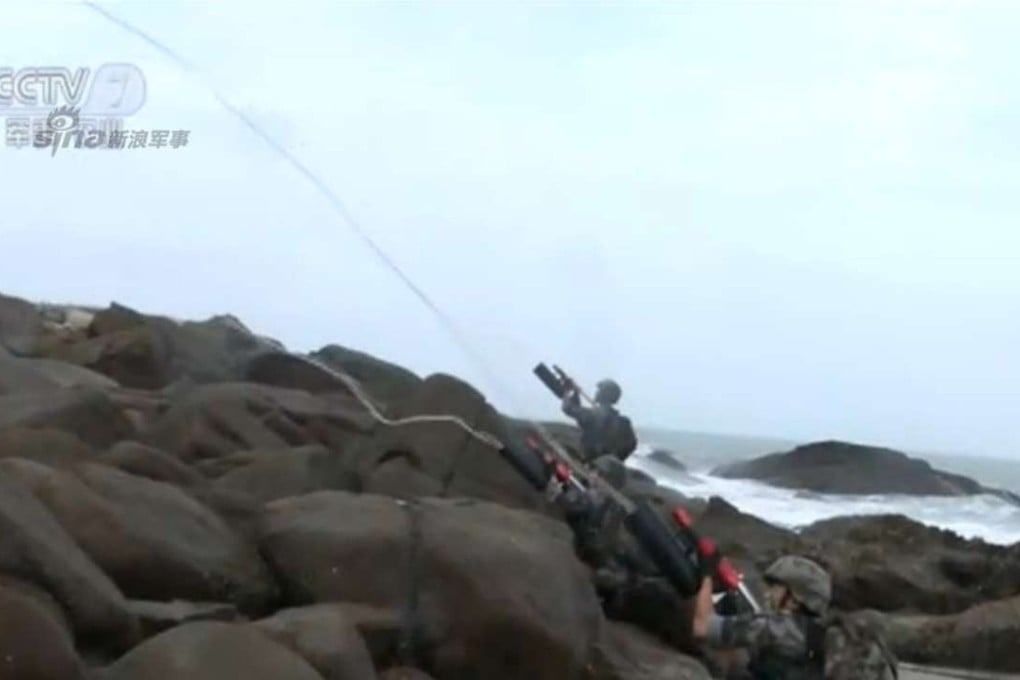PLA steps up drills in southeast ‘targeted at Taiwan and US’
Exercises meant to beef up army’s ability to handle security threats, says defence ministry

The defence ministry said on Wednesday that the army had stepped up drills in the southeast coast to bolster its ability to handle security threats.
The comment came after the 31st Group Army, affiliated with the newly founded Eastern Theatre Command, conducted a landing exercise on the Fujian coast on Monday.
One of the group’s main tasks is to respond to a proclamation of independence by Taiwan.
“The recent land, air and sea training exercises in the southeast of China is aimed at testing and boosting China’s ability to address security threats and fulfil its military mission,” the ministry said.
It said the drills did not target any party, but military observers said they served as a warning against Taiwanese independence – ahead of Tsai Ing-wen’s presidential inauguration tomorrow.